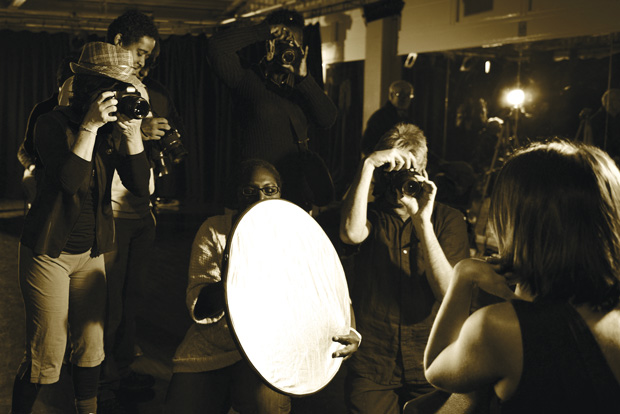[wpauction id=”46″ /]
[wpauction id=”47″ /]
[wpauction id=”45″ /]
[wpauction id=”49″ /]
[wpauction id=”44″ /]
Two rounds of college funding unleash £232m in government cash
The government is to release £232.7m of funding to revamp more than 50 colleges who will match-fund with £250m of their own cash.
An extra £330m will be made available for skills capital investment through the Local Growth Fund in 2016-17.
Business Secretary Vince Cable, speaking at the Association of Colleges (AoC) annual conference, said: “Boosting the quality and availability of training is fundamental to building a stronger economy, with skilled jobs spread across all regions of the UK.
“Our commitment to support modern, well-equipped colleges and training centres to train the next generation sits alongside the government’s industrial strategy giving business the confidence to invest in the long-term.
“For Britain to compete, and for everyone to reach their potential, we need the very best training centres, staffed with the very best trainers. This is why I can confirm that a further £330m will also be available for skills capital investment through the Local Growth Fund in 2016-17 in order to support local priorities.
“This investment, along with these 50 or so new college capital projects takes total government capital investment in FE colleges since May 2010 to more than £1.5bn.”
Projects being funded include Dudley College’s new engineering and advanced manufacturing workshops, Leeds City College centre for mechanical engineering and Runshaw College’s industry standard engineering and science facilities.
The investment in college estates forms the third and fourth rounds of the College Capital Investment Fund (CCIF).
Martin Doel, AoC chief executive, said: “This newly-announced capital investment will make a real difference to further education colleges and their students across England. It is noteworthy, as the Minister points out, that colleges have provided £250m of their own funding which will make these new buildings a reality.
“Unfortunately, the future is less certain. Ministers have announced that local enterprise partnerships will be involved in the allocation of the FE capital budget from 2015 forward but there is little detail as to how government will ensure all bids for funding are treated fairly and achieve similar value for money to the allocations announced.
“There’s also an approaching demographic bubble with the numbers of 16 to 18-year-olds predicted to soar in the latter part of this decade. Ministers need to start thinking about this now.”
Skills Minister Matthew Hancock also announced a new programme — to improve broadband infrastructure and provision in colleges.
Colleges will receive new funding — which was not specified — to install second broadband connections with help to make the most effective use of existing provision, including upgrades to bandwidth.
Mr Hancock said: “Colleges that embrace the latest technologies can revolutionise the services they offer to students and business. This new funding to improve broadband infrastructure will provide colleges with greater resilience and improved broadband speed.
“As many as eight out of 10 colleges are relying on a single connection, for both their operational and teaching needs — including cloud-based applications and online business.
“It’s easy to imagine what happens if that connection goes down, that’s why I’m allocating extra funds to allow colleges to install a second broadband connection — giving them greater ability to operate and support their students with the latest technology 24/7.”
It is thought that as many as eight in 10 colleges are relying on a single broadband connection and maybe unaware of the impact this could have if the connection fails.
Lynne Sedgmore, executive director of the 157 Group, said: “The additional investment to support college broadband accessibility is most welcome, as is the reassurance that skills capital funding flowing through local authority partnerships is indeed ring-fenced and guaranteed for an additional year. We will of course be working with partners to establish how this can be used for colleges.”
Peter Roberts, chair of the 157 Group and chief executive of Leeds City College, said: “Last month, the 157 Group published its manifesto for FE and skills. Two key requests focused on policy and funding stability.
“Both the tone and the content of the ministerial speeches indicate that some stability may be coming. This is welcome, as is the clear recognition of the good work being done by most FE colleges.”
Careers guidance in ‘crisis’ as survey finds less than one in five given vocational qualification advice
The Confederation of British Industry (CBI) has warned that careers guidance is “heading towards a cliff edge”, joining sector-wide calls to ensure young people are aware of all their options.
The comments made by CBI director for employment and skills policy Neil Carberry, come after a survey of 2000 14 to 25-year-olds showed that only 26 per cent of them were given information on apprenticeships and only 17 per cent were advised on vocational qualifications.
Mr Carberry said: “Careers guidance in England’s schools is heading towards a cliff-edge.
“Advice is scarce for young people not interested in being funnelled towards A Levels and university and exciting, potential life-changing career alternatives are being lost.”
The survey, conducted using the Barclays Youth Barometer, which measures young people’s aspirations, also found that only nine per cent received advice on starting their own business, and just over one in 10 (11.8 per cent) received no advice at all.
Mr Carberry added: “There is a worrying shortage of skills in some of our key industries and if we don’t give young people the information they need to find apprenticeships or sign up to high-quality vocational training, this will only get worse.”
The warning coincided with the publication of a report calling for action on a career advice “crisis”, published by the Skills Commission, a body administered by Policy Connect, a cross-party, non-profit think tank.
The report, ‘One System, Many Pathways’, was commissioned by co-chairs of the Commission MP Barry Sheerman and Dame Ruth Silver, and is the result of a cross-party inquiry chaired by Sir Mike Tomlinson, former chief inspector of schools, and Ian Ferguson, chairman of trustees at Metaswitch.
It said: “The Department for Education must immediately acknowledge the crisis in information, advice, and guidance, and undertake a full review of provision.
“A range of sources must be available to all learners before the age of 14, their parents, carers and guardians, alongside access to trained advisors.”
“Real choice for all learners is firstly about creating the range of options within the system to cater for the diversity of learners. However, these options are irrelevant if young people and those who guide them are not given adequate information about the options available, or not advised on what is right for each learner.”
However, the report added: “Teachers are not trained to offer employment advice, and cannot be expected to understand what all careers entail, or even recognise how a particular aptitude might translate into a perfect career option.
Since April 2012, schools, rather than local authorities have been responsible for providing information, advice, and guidance on future careers.
However, the report added: “As the recent Ofsted report made clear, this is not yet working, and Government must intervene before more learners leave this transition phase with scant clear knowledge from their educational provider about how their skills might translate into worthwhile employment.”
The Association of Colleges has launched the Careers Advice: Guaranteed campaign to deal with the issue, after Ofsted found that very few schools were offering effective careers advice.
The campaign calls for increased access to advice through Jobcentre Plus and local authorities, accountability through Ofsted and investment from the Department for Education and informed choice for learners.
At the association’s annual conference last month, association president Michele Sutton said:
“Wherever I go, whoever I speak to, principals across the country all agree that the quality of impartial advice and guidance is nothing less than appalling,” said Mrs Sutton.
She added: “I would say to the Prime Minister — please, get a move on.
The campaign calls for increased access to advice through Jobcentre Plus and local authorities, accountability through Ofsted and investment from the Department for Education and informed choice for learners.
Mrs Sutton said: “The longer this disgraceful situation exists, the longer term effect there is on the young.”
Charity gets £10k boost after night of music, food and fundraising auction

Right: Shane Mann from FE Week presents the auction and raffle items Photos by Andy Whitehead
More than £10,000 is heading to the Helena Kennedy Foundation after the third annual FE Week charity auction.
Click here for your online auction ending November 3 at 6pm.
The great and the good from the world of FE were at Birmingham’s five-star Hyatt Hotel on Tuesday, November 19, for a three-course meal, auction and raffle.
A 130-strong guestlist, including Association of Colleges (AoC) chief executive Martin Doel, was entertained by young music students.

Daniel Taylor, from Rotherham College, opened proceedings with covers including Sammy Davis Junior’s Mr Bojangles and Nina Simone’s Feeling good.

West Nottinghamshire College acoustic guitarist Pat Cunningham played during dinner before Middlesbrough College seven-piece band Hollow closed the show.
Meanwhile, students from Solihull College once again provided the floral displays that were sold off at the end of the night, supported by NCFE and Tribal, to boost fund- raising efforts.
Among those in the audience were David Hughes and Stewart Segal, chief executives of the National Institute of Adult Continuing Education and the Association of Employment and Learning Providers, respectively, and 157 Group executive director Lynne Sedgmore.

They were joined by a host of principals, such as West Nottinghamshire’s Asha Khemka, East Kent’s Graham Razey and Rotherham’s Gill Alton.
They were all in town for the AoC Conference, next door in the International Convention Centre.
Among the items that went under the hammer were afternoon teas with Helena Kennedy herself and former Labour leader Neil Kinnock.
But the night’s biggest earner was a daredevil acrobatic flying session, organised by City College Norwich whose principal, Corienne Peasgood, agreed to double the item after two opposing bidders locked horns at the unusual figure of £810.47. The move meant the two items pulled in £1620.94 for the charity.
And there was also a surprise in store for FE Week editor and auctioneer Nick Linford (pictured right), who was presented with an ambassador’s bowl by foundation chair Dr Ann Limb for his fundraising efforts that have seen FE Week generate more than £30,000 for the charity in three years.
“It was a real honour, not to mention quite a surprise, to get the award as I think organising these charity auctions and being able to help the foundation is one of the perks of my job,” he said.
“But I’m extremely grateful for the honour — it really topped off a great night of fun, food, music and generous bidding from everyone.”
FE Week reporting on location
The FE Week charity auction not only raises money for the Helena Kennedy Foundation — it also allows the newspaper’s editorial team to put names to some of the sector faces they hear about week in, week out.
The evening provided a brief respite from producing the current Association of Colleges edition of the newspaper from a room on the 24th floor of the Hyatt Hotel.
FE Week and Me winner 2013
I feel my photo represents college because it captured the learning moment. It reminds me of students and tutors working together to produce the best portraits.
During a studio based portrait session, students are learning to use different lighting techniques.
In this photo, the tutor is explaining how to set up main-light, hair-light and fill-in-light to add an eye catching impact to a portrait.
As well as the use of various lighting techniques, I also needed a flash and reflector to achieve the best results.
I am very excited, as I have never won anything like this before. I hope to eventually launch my own photographic business and this has given me a lot more confidence that I will achieve this one day.
Knowing that I won has already made me feel a lot more confident about dealing with people I am photographing. It makes me think that I am definitely on the right track.






